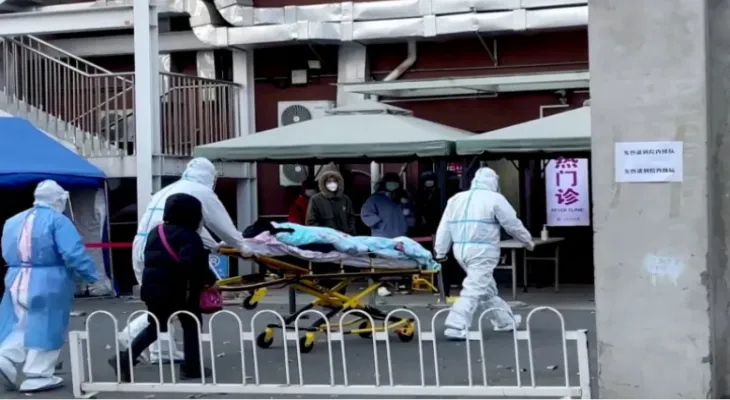Search here
Newspaper
Search here

Arab Canada News
News

Published: December 14, 2022
The Chinese Ministry of Health acknowledged on Wednesday that the country is facing a surge in COVID-19 cases, and it is impossible to determine its magnitude. Meanwhile, Chinese President Xi Jinping and the new Standing Committee of the Politburo of the ruling Communist Party and senior government officials will meet in the next two days to plan the recovery of the struggling Chinese economy, at a time when the country is facing a rise in coronavirus infections.
The new wave of infections is particularly prolonged in Beijing, home to 22 million people, with a rapid spread of cases not seen in the capital since the start of the pandemic.
China also recorded 2,291 new symptomatic coronavirus cases on December 13, having recorded 7,679 new cases the previous day, including 2,315 symptomatic and 5,364 asymptomatic cases.
Sun Chunlan, Deputy Premier, announced that cases are "rapidly increasing" in Beijing, where some companies have reported 90% of their staff infected.
The new wave also follows China's announcement last week of easing strict health restrictions imposed to combat COVID-19, which aimed to reduce infections and deaths.
Beijing specifically announced the end of automatic quarantine in special centers for those who test positive and the cessation of widespread mandatory PCR testing campaigns.
As a result, the number of people who voluntarily undergo testing has declined, logically leading to a decrease in recorded new cases, which creates a false impression of an improvement in the health situation.
Also, Beijing has decided to stop issuing comprehensive data on the number of new COVID-19 cases after the cancellation of mandatory testing procedures led to numbers failing to provide a clear picture of the actual reality.
The Ministry of Health confirmed that official figures no longer reflect reality, stating that "most virus carriers without symptoms no longer undergo PCR tests, making it impossible to form a specific idea of the true number of infected individuals."
Most people now conduct self-tests at home, without health authorities being able to count their numbers.
After holding onto the strict "Zero COVID" policy for a long time, the government now seems determined to open up the country. However, this wave of infections, expected to spread beyond the capital to other regions, could have a severe impact on the healthcare system, especially in less developed areas.
On the other hand, Chinese President Xi Jinping and the new Standing Committee of the Politburo of the ruling Communist Party and senior government officials will meet in the next two days to plan the recovery of the struggling Chinese economy, at a time when the country is facing a rise in COVID-19 cases.
The annual conference on economic policies will be held amid the virus outbreak in the capital Beijing, one week after the Chinese leadership abandoned strict restrictions related to the "Zero COVID" policy.
Xi also defended the policy, which last month sparked the largest protests during his decade-long rule.
Three informed sources said the annual central economic work conference will be held behind closed doors on Thursday and Friday.
Policy insiders and business analysts are closely monitoring the situation, saying that it is likely that the leadership will plan more stimulus measures and discuss growth targets.
Economists estimate that China's growth rates have slowed to about 3% this year, much lower than the official target of around 5.5%, marking China's worst performance in nearly half a century.
Comments